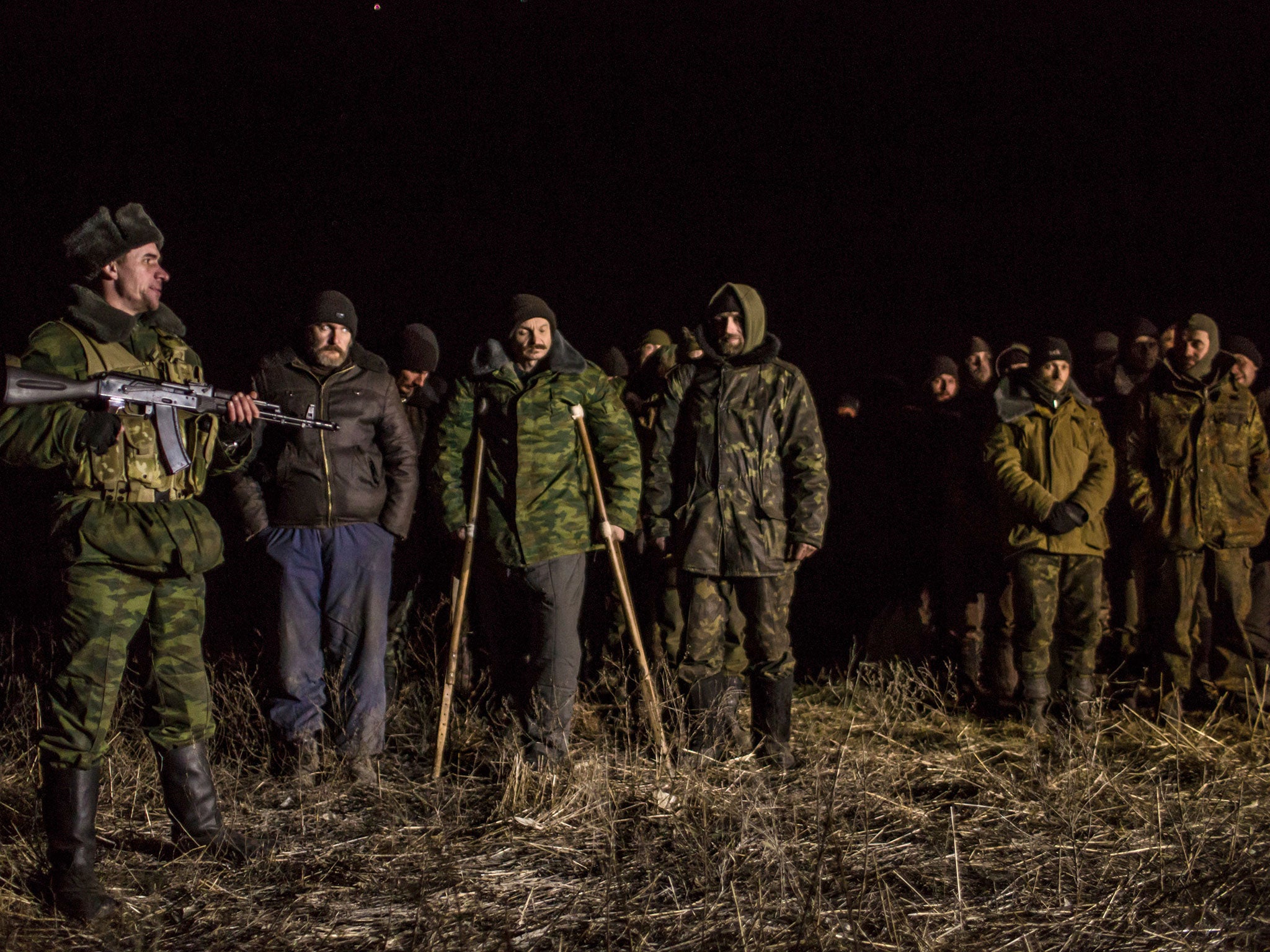Ukraine crisis: Fears grow that vital port of Mariupol is Moscow's next target following Kharkiv blast
Optimism fades on ceasefire as Ukrainian government reports separatist troop movements around Mariupol

Your support helps us to tell the story
From reproductive rights to climate change to Big Tech, The Independent is on the ground when the story is developing. Whether it's investigating the financials of Elon Musk's pro-Trump PAC or producing our latest documentary, 'The A Word', which shines a light on the American women fighting for reproductive rights, we know how important it is to parse out the facts from the messaging.
At such a critical moment in US history, we need reporters on the ground. Your donation allows us to keep sending journalists to speak to both sides of the story.
The Independent is trusted by Americans across the entire political spectrum. And unlike many other quality news outlets, we choose not to lock Americans out of our reporting and analysis with paywalls. We believe quality journalism should be available to everyone, paid for by those who can afford it.
Your support makes all the difference.Violence in Ukraine spread today as the country’s second biggest city, Kharkiv, was struck by a bomb attack that killed at least two people.
Kiev was quick to blame Moscow for the attack, saying it had arrested four suspects who had been armed and instructed in Russia.
The attack occurred at a rally marking the anniversary of the death of protesters during the demonstrations that eventually removed pro-Moscow president Viktor Yanukovych from power. A policeman and one other person were confirmed to have died in the blast.
The bombing was a further blow to a shaky ceasefire signed 11 days ago, intended to end the violence in the east of the country where Russian-backed separatists recently took control of the strategic town of Debaltseve.
It raised fears that violence in the country could expand further west, beyond current territory held by the separatists. Kharkiv is more than 120 miles from Ukraine’s front line. Although it has experienced sporadic separatist violence, support for the Kiev government is far more widespread.
“Today is memorial Sunday, but on this day terrorist scum revealed its predatory nature,” President Petro Poroshenko wrote on Facebook. “This is a brazen attempt to expand the territory of terrorism.” Moves towards a ceasefire lent the picture a relatively positive look earlier in the weekend. Late on Saturday government and separatist forces exchanged prisoners.
Meanwhile, rebel commander Eduard Basurin said on Sunday that his forces would begin withdrawing artillery from the front lines, a condition of the ceasefire signed in Minsk earlier this month.
Ukrainian military spokesman Col Andriy Lysenko said Ukrainian troops would also pull back from the front lines.
But the ceasefire was followed immediately by a decisive victory for separatists in the strategic city of Debaltseve, forcing the withdrawal of Ukrainian troops amid fierce fighting.
Despite the latest measures, Kiev still fears separatist troops may be preparing to move further into the west of the country.
Separatists forces have reportedly moved into the region near to the port city of Mariupol, fuelling fears that it could come under attack. Seizure of the city by the rebels would provide a direct land route between Russia and the Crimean peninsula, the region Moscow annexed a month after the fall of Mr Yanukovych. Many Crimeans consider his overthrow to be a coup.
Earlier on Saturday the Ukrainian prime minister, Arseniy Yatsenyuk, dismissed the idea that the ceasefire was holding. “We don’t have a ceasefire,” he told Fox News, “because a ceasefire means that no one shoots.”
Ukrainian spokesman Col Lysenko quoted Reuters news agency as saying a military train carrying 60 armoured vehicles including tanks had arrived in the town of Amvrosiivka from Russia over the weekend, and said a convoy of military equipment had later crossed the border near Novoazovsk, east of Mariupol on the Sea of Azov.
He added that fighting was in progress at the village of Shyrokyne, east of Mariupol.
Moscow did not immediately respond to Kiev’s accusation that it had a hand in Sunday’s bombing. However, Markian Lubkivskyi, an aide to the head of Ukraine’s SBU security service, said of the suspects detained: “They are Ukrainian citizens who underwent instruction and received weapons in the Russian Federation, in Belgorod [a city across the nearby Russian border from Kharkiv].”
Sunday’s rally was one of several events held to mark the first anniversary of last year’s protests. More than 100 people died in the demonstrations, which were a catalyst for the violence that has claimed more than 5,500 lives.
Igor Rossokha, one of the protesters, told Reuters Television his friend Igor was among those killed. “We tried to give him first aid but the paramedics arrived and said he’d died instantly because he was struck in the heart,” he said.
US Secretary of State John Kerry warned on Saturday, following a meeting with Philip Hammond, the Foreign Secretary, that a continued failure of the ceasefire would entail “further consequences, including consequences that will place added strains on Russia’s already troubled economy”. EU President Donald Tusk said he would “begin consultations on Monday to increase some of the measures in connection with the aggression” in Ukraine, according to the Interfax-Ukraine news.
Join our commenting forum
Join thought-provoking conversations, follow other Independent readers and see their replies
Comments